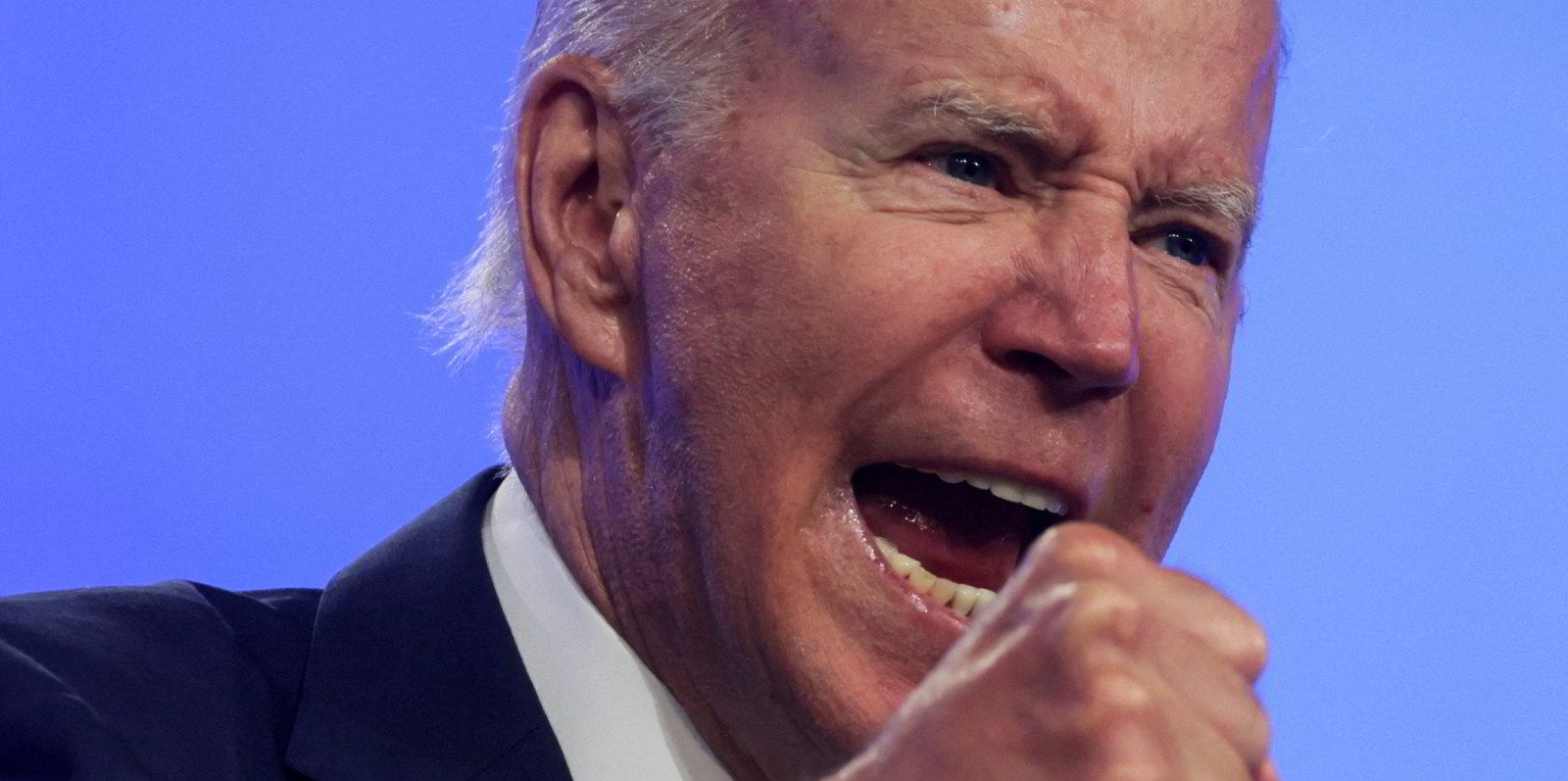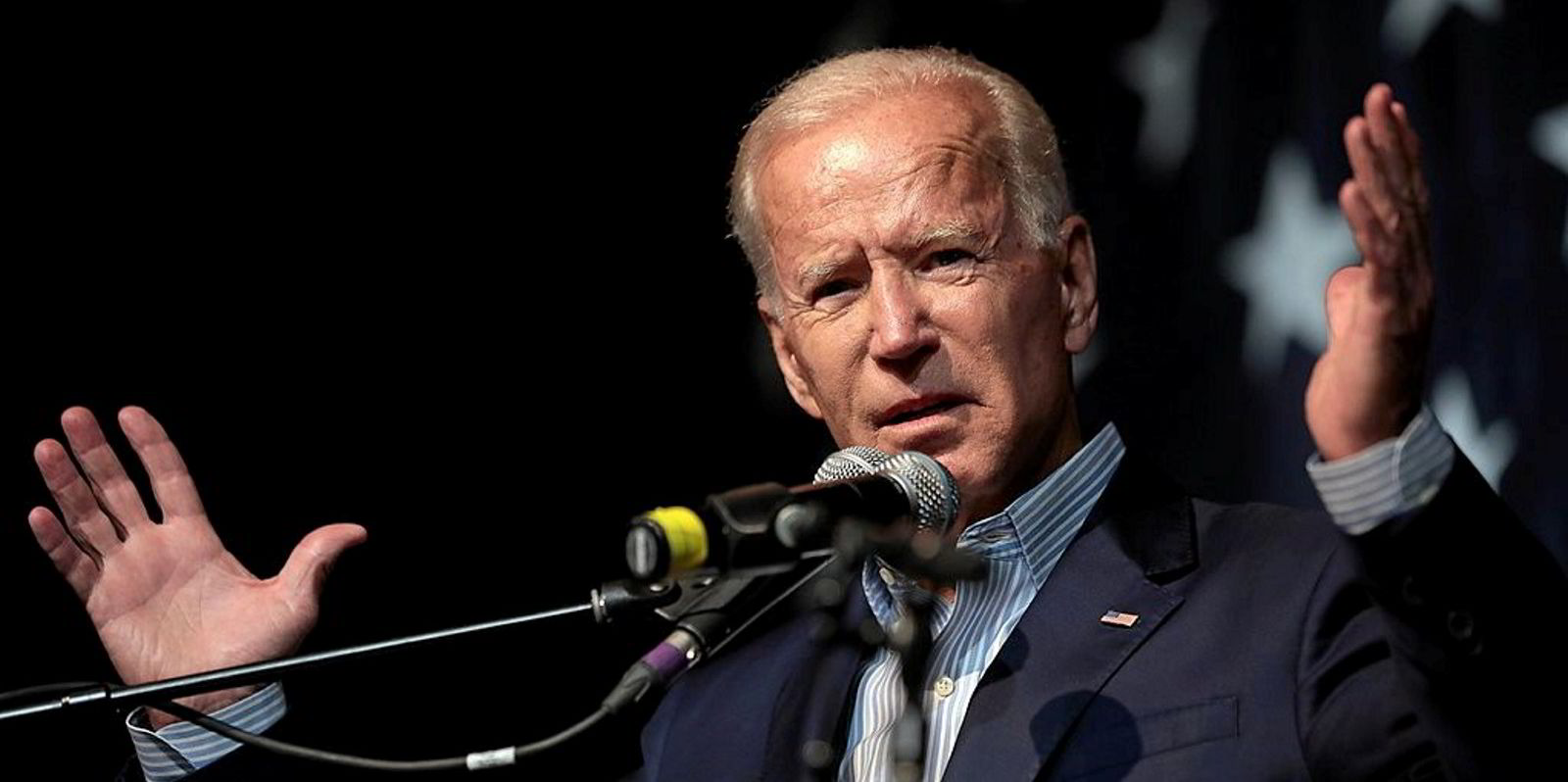After 18 months in power, I don’t remember ever seeing Joe Biden get really angry — even when he was being goaded personally by his defeated presidential rival Donald Trump as an ageing has-been.
So it was surprising that the normally restrained man sitting in the White House should blow a gasket over container shipping.
American political leaders usually manage a four-year stint in Washington without mentioning or even noticing the maritime sector.
Biden used Trump-like language last week: “Every once in a while, something you learn makes you viscerally angry, like if you had the person in front of you, you want to pop them. I really mean it.”
This all seems a bit over the top and inappropriate. Does he really want to punch a liner operator in the face? And what kind of information did he “learn” from that made him so furious?
I suspect it’s political theatre. But either way, it spells significant danger for the non-US container shipping companies, which now face tougher legislation and are taking the rap for wider inflation.
Some of the criticism may be valid. Some liner operators do seem to have been refusing to honour contractual arrangements. And it is difficult to earn $7.2bn profits in three months, as CMA CGM has just done, without facing accusations that you are milking high demand, congestion charges and a ship supply shortage.
As we know, the Federal Maritime Commission (FMC) is on the case, and when American regulatory authorities crank into action, like the sheriffs in the old western movies, they usually get their man — or at least get someone.
And if the president is himself punching the sideboards in his own kitchen, you know the FMC is unlikely to find “no case to answer”.
The regulator last week slapped a $2m civil penalty on Germany’s Hapag-Lloyd to address alleged violations around detention and demurrage. Daniel Maffei, chairman of the FMC, said this was part of a plan to “restore full confidence in our ocean freight system”.
There are investigations into the practices of Taiwan’s Wan Hai Lines and Japan’s Ocean Network Express, while Denmark’s AP Moller-Maersk’s US arm has been subpoenaed by the Department of Justice (DoJ) as part of an investigation into supply chain problems.
Is it by chance that “foreigners” are being blamed for local problems?
Biden unleashed his angry words at the Port of Los Angeles with some container ships lined up behind him for extra dramatic effect.
He was there to push the Ocean Shipping Reform Act, which has since been passed by Congress and which is aimed at beefing up the powers of the FMC and cutting unfair costs.
The presidential outburst came on the day that the Consumer Price Index rose 8.6% on a year ago amid expectations that the central bank will raise borrowing rates to try to dampen inflation. Biden is under huge political pressure ahead of the mid-term elections to explain why Americans are in the middle of a cost-of-living crisis.
Washington-based lobby group the World Shipping Council has led the counter-attack, arguing that “inflammatory rhetoric” rather than hard data is distorting perceptions and decision-making in the US.
Market dynamics, not vessel-sharing agreements, are responsible for soaring freight rates, it argued this week, and congestion will continue as long as US port infrastructure remains inadequate.
When American regulatory authorities crank into action, like the sheriffs in the old western movies, they usually get their man — or at least get someone
It’s worth saying that the “sheriff” does occasionally back off, as in 2017, when the DoJ closed a two-year investigation into price-fixing without charges.
The same thing could happen if freight rates decline. Ralf Habben Jansen, chief executive of Hapag-Lloyd, told my colleague Ian Lewis that the trend of spot rates falling since January should continue.
A mixture of a slowing global economy, easing of congestion and an increase in new tonnage coming into the market is likely to have a negative impact for shipowners towards the end of the year once the August to October peak season is over, argues Habben Jansen.
Either way, Biden should put his own country’s infrastructure in order as much as rooting out any unfair practices by liner operators or otherwise tilting at windmills like an angry American Don Quixote.




